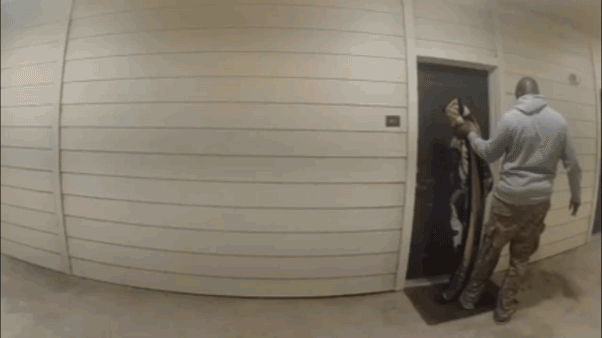LOS ANGELES – A man who sexually assaulted his girlfriend's 11-year-old daughter then killed her after she bit off part of his tongue was sentenced to death Friday for a second time.
In 2003, the California Supreme Court upheld the conviction of James Heard but overturned his first death sentence, finding the trial judge improperly excused a man during jury selection.
Heard, 58, was sentenced again in Los Angeles County Superior Court for the 1990 murder of Katrina Brown.
The crime was unprovoked and left "an unrelenting image of horror" on those who saw the victim, Judge William R. Pounders said while heeding the death recommendation from the jury.
Heard was living in Compton when the assault occurred while the girl's mother was at work.
Prosecutors said she bit off part of his tongue during the attack, and Heard poured a bottle of rubbing alcohol down her mouth to make her regurgitate it before stomping and strangling her.
In a letter read to the court by a prosecutor, sheriff's Lt. Rod Kusch wrote that it was the most brutal case he had seen in 28 years with the department.
The girl's mother could not bring herself to address the court, he said.
"I often wonder what Katrina's life would have been like today as a 31-year-old woman," Kusch wrote. "The most distressing fact in the whole case is my knowledge that Katrina was alive for nearly all of his tortuous behavior."
Heard testified last year that he had been drinking and smoking crack cocaine for more than a day and remembered nothing of the attack. He said he "had a lot of love in my heart" for his girlfriend and her daughter.
Heard initially was sentenced to death in 1993 after being convicted of first-degree murder, assault with a deadly weapon, sexual penetration by a foreign object and committing a forcible lewd act on a child.
Under death penalty rules, potential jurors are asked whether they could sentence somebody to death. If they cannot, they are lawfully allowed to be excused.
The excused juror in Heard's case said he believed a life sentence was more severe punishment than a death sentence.
The high court said the judge excused the man without knowing whether he would be willing to vote for the death penalty.









































